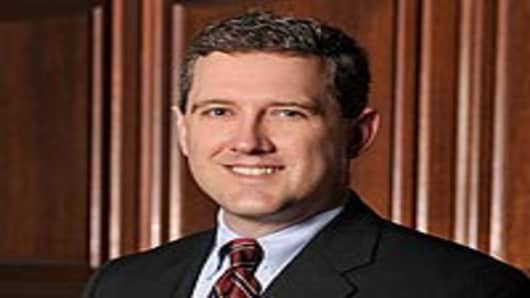A top U.S. Federal Reserve official on Monday hit back at critics who argue that the central bank's asset purchase program won't work, saying it should be as effective as traditional monetary policy.
James Bullard, president of the St. Louis Federal Reserve Bank, said the likely benefits of the Fed's decision last week to buy an additional $600 billion of Treasury bonds by mid-2011 outweighed the costs.
Bullard said that the U.S. recovery has slowed, putting it in a disinflationary trend that must be addressed to avoid following the same path as Japan, which has been battling deflation for years.
"While asset purchases are sometimes viewed as unconventional, the financial market effects have been entirely conventional," said Bullard, who has a vote on Fed policy this year.
Real interest rates declined, inflation expectations rose, the dollar fell and equity prices rose as a result of the Fed's action, he said, according to slides from a presentation prepared for delivery in New York.
He said while it is more difficult to weed out the impact on the broader economy, this is a typical problem for monetary policy.
"Most likely, the real effects will be just as conventional as the financial market effects," he said.
It takes 6 to 12 months for an easing of monetary policy to affect output, consumption and investment, he said.
Bullard said it was important that the Fed defend its "implicit inflation target from the low side as we would from the high side."
The Fed's implicit inflation target is around 1.7 percent to 2 percent.
Bullard said worries that the Fed's policy could create high inflation down the road were "legitimate and important," but the disinflationary trend "is worrisome right now."
With interest rates already near zero, further disinflation would mean higher real interest rates — or a tightening of monetary policy even as the recovery slows.
Bullard said concerns that the Fed is monetizing, or inflating away the U.S. deficit were misplaced, as the Fed has often said it will return its balance sheet to normal over time.
He said it was "absolutely imperative" that Congress and the administration tackle U.S. budget problems in the long run.
"Europe has given the U.S. an important wake-up call on how devastating it can be to leave long-run structural deficit problems unaddressed," he said.


